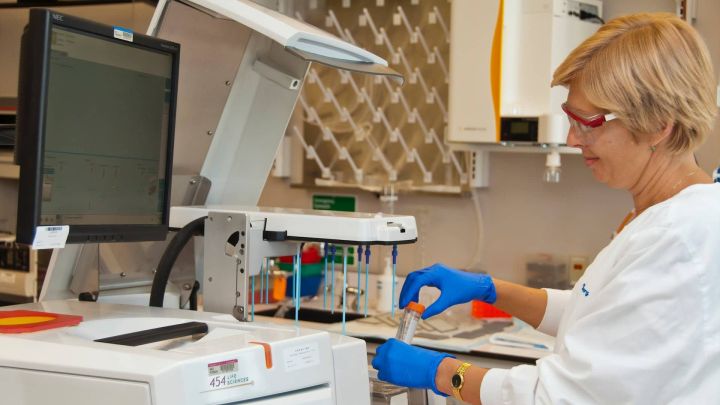The first clinical trial in the UK to test whether proton beam therapy produces a benefit for certain breast cancer patients has recently been launched in the UK.
The clinical trial (PARABLE) will take place at 22 sites in the UK and is planned to recruit 192 patients at high risk of developing heart problems.
The PARABLE trial is led by researchers from the Royal Marsden Hospital, the University of Cambridge, and the Institute of Cancer Research (ICR) UK, and is managed by the Clinical Trials and Statistics Unit, funded by Cancer Research UK, at the Institute of Cancer Research (ICR) UK.
Trial details

More than 30,000 breast cancer patients in the UK need radiotherapy after surgery each year. Radiotherapy for breast cancer uses high-energy X-rays to kill cancer cells, which not only improves patient survival rates but also reduces the risk of the cancer returning.
Radiotherapy is very effective for the vast majority of breast cancer patients and has minimal side effects, but it still puts a small percentage of patients (<1%) at risk of one type of side effect, namely heart problems later in life. This is mainly due to the fact that patients have breast tissue and lymph nodes that require radiotherapy located close to the heart, putting them at potential risk of heart problems.

Proton beam therapy uses charged particles instead of X-rays to target tumours more precisely. The researchers hope that it will deliver the required dose precisely where it is needed, while minimising the dose of radiation delivered to the heart and without increasing the risk of early side effects. The average dose of radiotherapy the heart is likely to receive can be estimated from radiotherapy planning scans, plus age and other medical history taken together to predict the potential risk of heart problems.
Proton beam therapy is currently used in other countries to treat breast cancer, but there are no previous trials addressing this issue, nor have there been trials directly comparing proton beam therapy with standard radiotherapy.
The PARABLE trial will involve patients who are predicted to have a greater than 2% risk of potential lifelong heart problems as a result of radiotherapy, which is approximately 500 patients for every 30,000 patients treated with radiotherapy for breast cancer. Patients in the clinical trial will be randomly assigned to receive either radiotherapy or proton beam therapy.
This innovative trial will measure the dose of radiation delivered to the heart as an early predictor of possible heart problems to avoid the need for years of long-term follow-up before results are available.

Dr Anna Kirby
Dr Anna Kirby, Head of Clinical Oncology at the Royal Marsden Hospital, Head of the Breast Cancer Radiotherapy Team at Cancer Research UK and Radiotherapy Lead for the PARABLE trial, said, "We hope the PARABLE trial will help patients to do further personalised radiotherapy and ensure that patients, wherever they are, have access to closer radiation therapy that is right for them."
Professor Judith Bliss, administrator of the PARABLE trial, said, "Radiotherapy is very effective in treating breast cancer, but it can be difficult to administer it effectively when patients have breast tissue and lymph nodes close to the heart, or when they are already at risk of heart problems. We are proud to initiate the PARABLE trial to test proton beam therapy to determine if it is more beneficial than radiotherapy for a group of patients who may need more targeted treatment.
The PARABLE trial will measure the average dose of radiation therapy delivered to the heart to predict long-term cardiac damage in patients. Using this early predictor will allow us to identify the potential benefits of using proton beam therapy on patients' long-term heart health within a few years rather than decades later."

Professor Charlotte Coles, Professor of Clinical Oncology in Breast Cancer, Chief Physician at Addenbrooke's Hospital, Cambridge, and Principal Investigator of the PARABLE trial, said, "Although only a very small number of breast cancer patients will be at higher risk of heart problems later in life, this is still a serious problem. Most patients who receive radiotherapy have decades of healthy life ahead of them and we need to do everything we can to avoid possible future treatment-related heart problems. Radiotherapy for breast cancer does work for most patients and has minimal side effects, but for a small group of patients, proton beam therapy may be a better option."
